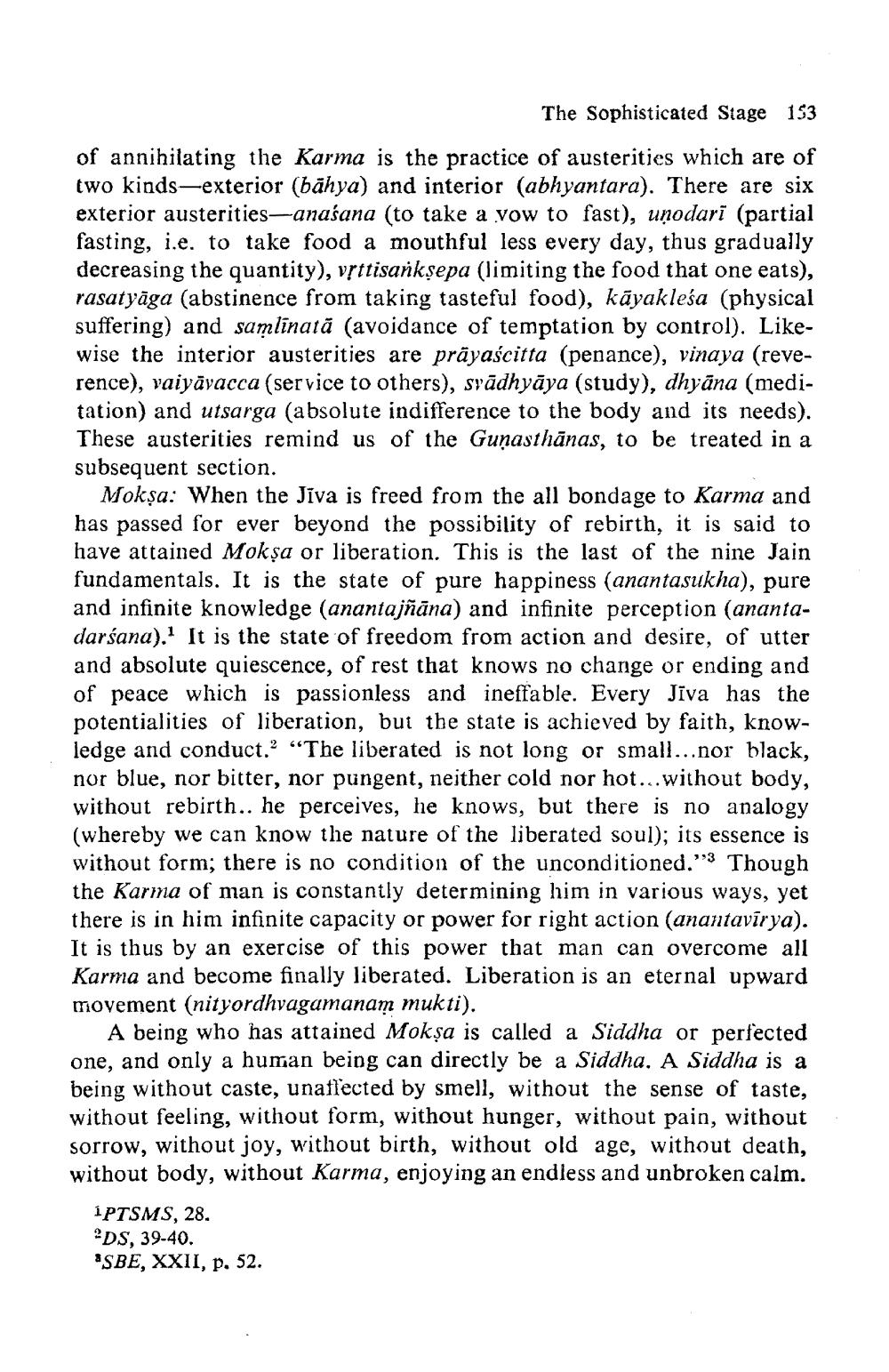________________
The Sophisticated Stage 153
of annihilating the Karma is the practice of austerities which are of two kinds—exterior (bāhya) and interior (abhyantara). There are six exterior austerities-anaśana (to take a vow to fast), unodarī (partial fasting, i.e. to take food a mouthful less every day, thus gradually decreasing the quantity), vrttisarksepa (limiting the food that one eats), rasatyāga (abstinence from taking tasteful food), kāyakleśa (physical suffering) and samlinatā (avoidance of temptation by control). Likewise the interior austerities are prāyaścitta (penance), vinaya (reverence), vaiyāvacca (service to others), svādhyāya (study), dhyāna (meditation) and utsarga (absolute indifference to the body and its needs). These austerities remind us of the Guņasthānas, to be treated in a subsequent section.
Moksa: When the Jīva is freed from the all bondage to Karma and has passed for ever beyond the possibility of rebirth, it is said to have attained Mokṣa or liberation. This is the last of the nine Jain fundamentals. It is the state of pure happiness (anantasukha), pure and infinite knowledge (anantajñāna) and infinite perception (anantadarśana).' It is the state of freedom from action and desire, of utter and absolute quiescence, of rest that knows no change or ending and of peace which is passionless and ineffable. Every Jiva has the potentialities of liberation, but the state is achieved by faith, knowledge and conduct.? “The liberated is not long or small...nor black, nor blue, nor bitter, nor pungent, neither cold nor hot...without body, without rebirth.. he perceives, he knows, but there is no analogy (whereby we can know the nature of the liberated soul); its essence is without form; there is no condition of the unconditioned."Though the Karma of man is constantly determining him in various ways, yet there is in him infinite capacity or power for right action (anantavīrya). It is thus by an exercise of this power that man can overcome all Karma and become finally liberated. Liberation is an eternal upward movement (nityordhvagamanam mukti).
A being who has attained Mokşa is called a Siddha or perfected one, and only a human being can directly be a Siddha. A Siddha is a being without caste, unaffected by smell, without the sense of taste, without feeling, without form, without hunger, without pain, without sorrow, without joy, without birth, without old age, without death, without body, without Karma, enjoying an endless and unbroken calm.
iPTSMS, 28.
DS, 39-40. *SBE, XXII, p. 52.




